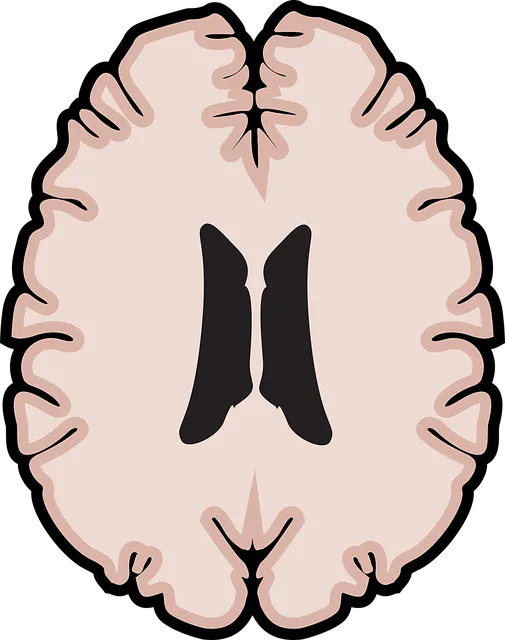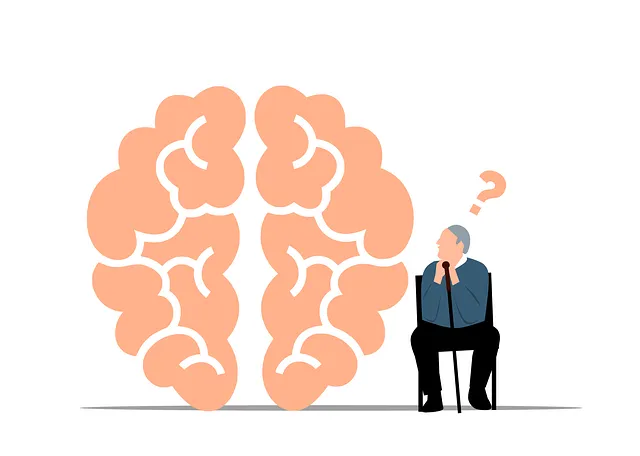Kaiser Permanente leads in mental healthcare excellence through multifaceted strategies. They combine innovative practices like Compassion Cultivation and Emotional Regulation techniques with public awareness campaigns to improve early intervention for mental illness. Their commitment includes specialized training, such as the Mental Wellness Podcast Series, fostering cultural competency among healthcare providers. Rigorous standards and continuous assessments ensure superior care. Integrating advanced technologies, including AI algorithms and remote services, enhances diagnosis accuracy and efficiency. Continuous learning through workshops and peer-to-peer training further improves diagnostic skills at Kaiser Permanente mental health jobs, revolutionizing mental wellness care.
Mental illness diagnosis accuracy is a critical aspect of healthcare, and ongoing efforts are needed to ensure proper identification. This article explores strategies aimed at enhancing diagnostic precision, focusing on Kaiser Permanente’s innovative approach to mental health care. We delve into their commitment to excellence, advanced training programs, the integration of technology, and continuous learning initiatives. By examining these methods, we can better understand how organizations like Kaiser Permanente are revolutionizing mental health diagnosis, ultimately leading to superior patient outcomes in mental health jobs.
- Understanding the Challenge: The Complexities of Mental Illness Diagnosis
- Kaiser Permanente's Approach: Prioritizing Mental Health Care Excellence
- Enhancing Training Programs: Equipping Healthcare Professionals for Accuracy
- Integrating Advanced Technologies: Digital Tools for Better Diagnosis
- Encouraging Continuous Learning: Staying Updated in Mental Health Practice
Understanding the Challenge: The Complexities of Mental Illness Diagnosis

Diagnosing mental illness is a complex task due to its multifaceted nature and varying presentations across individuals. What may be indicative of depression in one person could differ significantly from another’s experience, making accurate diagnosis challenging. This complexity is further compounded by the fact that mental health conditions often coexist with physical ailments or other psychiatric disorders, adding layers of intricacy to the diagnostic process.
At Kaiser Permanente, recognizing these complexities, mental health professionals employ various innovative strategies, such as Compassion Cultivation Practices and Emotional Regulation techniques, to enhance diagnosis accuracy. Additionally, Public Awareness Campaigns Development plays a pivotal role in educating the public about the nuances of mental illness, fostering an environment that encourages open dialogue and early intervention—a critical step towards improving overall mental health outcomes.
Kaiser Permanente's Approach: Prioritizing Mental Health Care Excellence

Kaiser Permanente takes a comprehensive approach to improving mental health diagnosis accuracy, prioritizing excellence in mental healthcare. Their strategy involves enhancing the capabilities of their workforce through specialized training and education programs, such as the Mental Wellness Podcast Series Production aimed at promoting self-awareness exercises among healthcare providers. By equipping professionals with advanced knowledge and skills, Kaiser Permanente strives to foster a culture of cultural competency within its network.
This initiative extends to implementing rigorous standards and ongoing assessments to ensure the highest level of care. The organization’s commitment to continuous improvement, coupled with their focus on mental health jobs, promises to revolutionize healthcare delivery, making it more accessible, accurate, and superior in addressing mental wellness concerns. Additionally, they encourage open conversations about mental illness through initiatives like the Mental Wellness Podcast Series, reflecting a holistic approach to supporting both patients and healthcare providers alike.
Enhancing Training Programs: Equipping Healthcare Professionals for Accuracy

Improving mental illness diagnosis accuracy begins with enhancing training programs for healthcare professionals. Organizations like Kaiser Permanente mental health jobs prioritize Superior education to equip practitioners with the latest research and techniques. This includes comprehensive training in social skills, risk assessment, and evidence-based practices that go beyond textbook knowledge. By fostering a culture of continuous learning, these initiatives ensure mental health professionals are well-prepared to navigate complex patient scenarios with enhanced accuracy and care.
One effective strategy is incorporating Mental Wellness Journaling Exercises into the training curriculum. This practice allows professionals to reflect on their experiences, analyze challenges, and share insights with peers. The guidance provided through these exercises not only improves clinical decision-making but also fosters a supportive learning environment that encourages open dialogue about mental wellness among healthcare providers.
Integrating Advanced Technologies: Digital Tools for Better Diagnosis

Integrating advanced technologies is a game-changer in enhancing the accuracy and efficiency of mental illness diagnoses, particularly in prestigious organizations like Kaiser Permanente, renowned for its mental health jobs. Digital tools offer innovative solutions to support mental wellness professionals in their assessments. For instance, artificial intelligence (AI) algorithms can analyze vast amounts of patient data, including medical history, symptoms, and behavior patterns, to assist in identifying conditions like depression or anxiety disorders with greater precision. This technology aids in personalized treatment planning, ensuring patients receive tailored interventions for improved outcomes.
Furthermore, digital platforms facilitate remote mental health services, enabling professionals to monitor patients’ progress and offer timely interventions through virtual consultations. Such advancements are crucial in reaching a broader population, promoting self-care practices, and preventing the escalation of mental health issues, especially in areas with limited access to specialized care. By leveraging technology, healthcare providers can enhance their diagnostic capabilities, ultimately improving patient care and outcomes at organizations like Kaiser Permanente.
Encouraging Continuous Learning: Staying Updated in Mental Health Practice

At Kaiser Permanente mental health jobs, a cornerstone of improving diagnosis accuracy lies in fostering continuous learning among professionals. Staying updated with the latest advancements and research in mental health practice is paramount. Through ongoing training programs, workshops, and peer-to-peer learning initiatives, healthcare providers enhance their understanding of diverse mental illnesses and refine their diagnostic skills.
Embracing innovative approaches such as integrating Emotional Intelligence into clinical practices and promoting Stress Reduction Methods can significantly improve diagnosis accuracy. Effective Communication Strategies also play a vital role in ensuring patients feel heard and understood, leading to more precise assessments and treatment plans. These efforts collectively contribute to the overall improvement of mental illness diagnosis accuracy at Kaiser Permanente.
Mental illness diagnosis accuracy is a multifaceted challenge, but through initiatives like those implemented by Kaiser Permanente, we’re closer than ever to ensuring superior mental health care. By prioritizing training, integrating advanced technologies, and fostering continuous learning, healthcare professionals are better equipped to provide accurate diagnoses and effective treatments. This comprehensive approach promises a brighter future for those seeking help, making mental health jobs at Kaiser Permanente and similar institutions highly valued and impactful.






